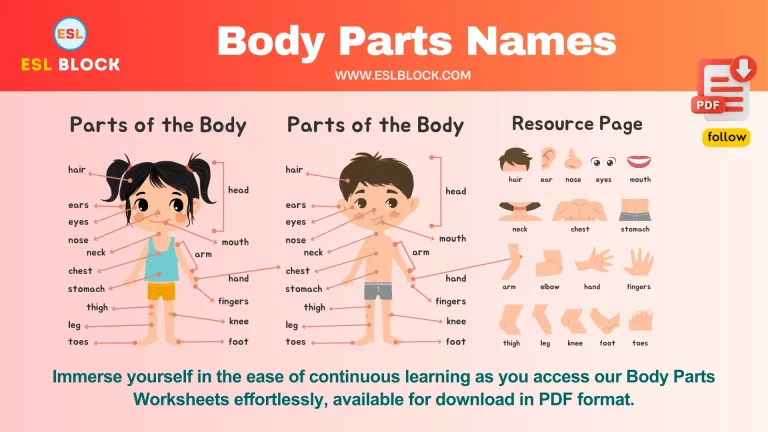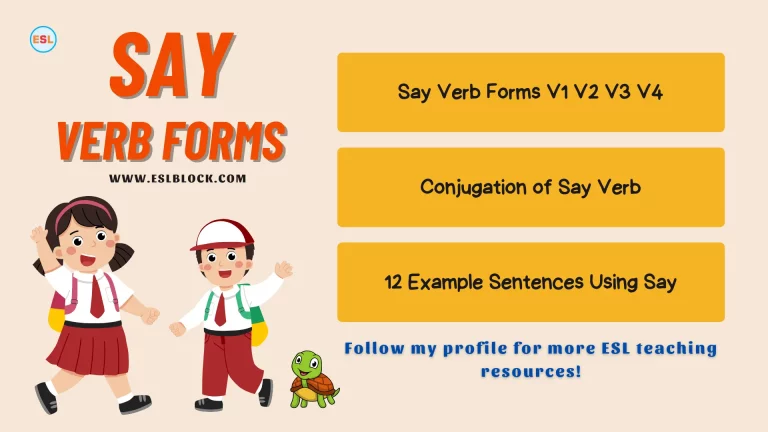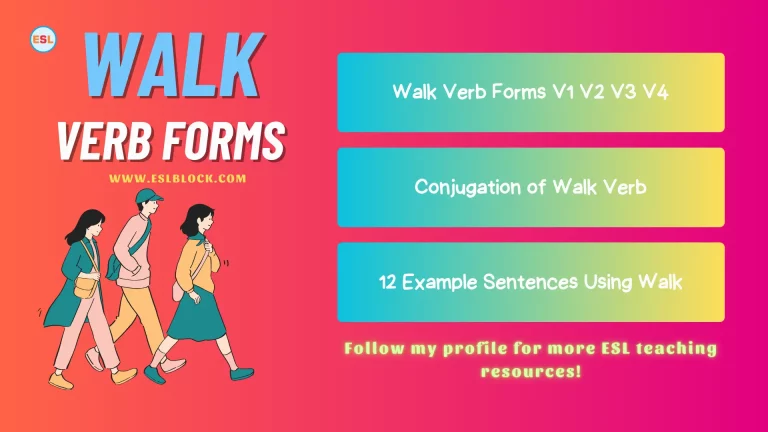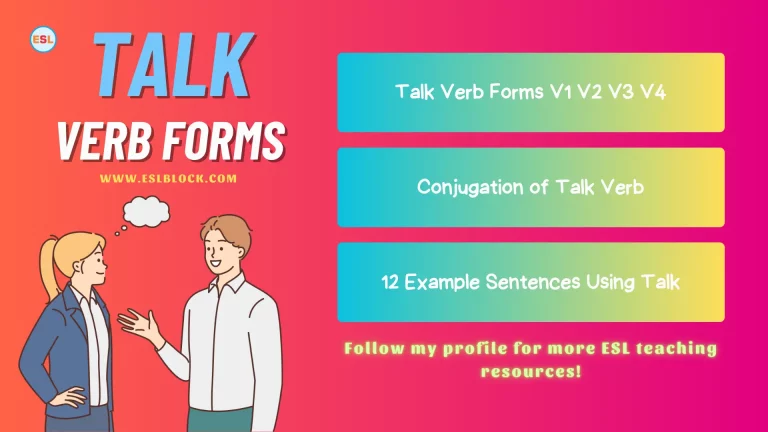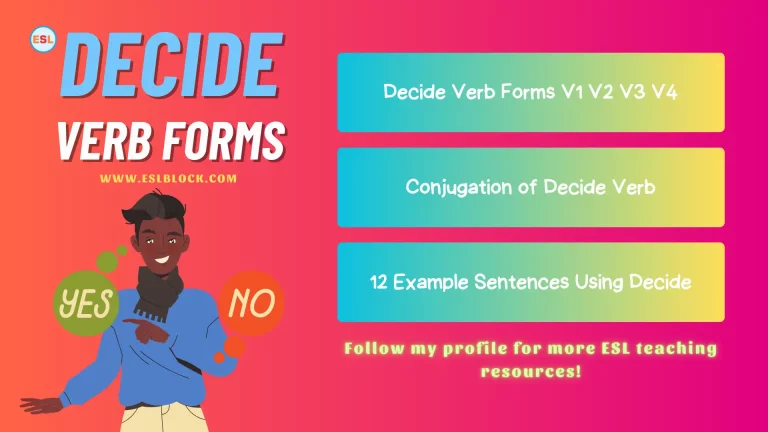Present Perfect Progressive Tense Definition With Examples
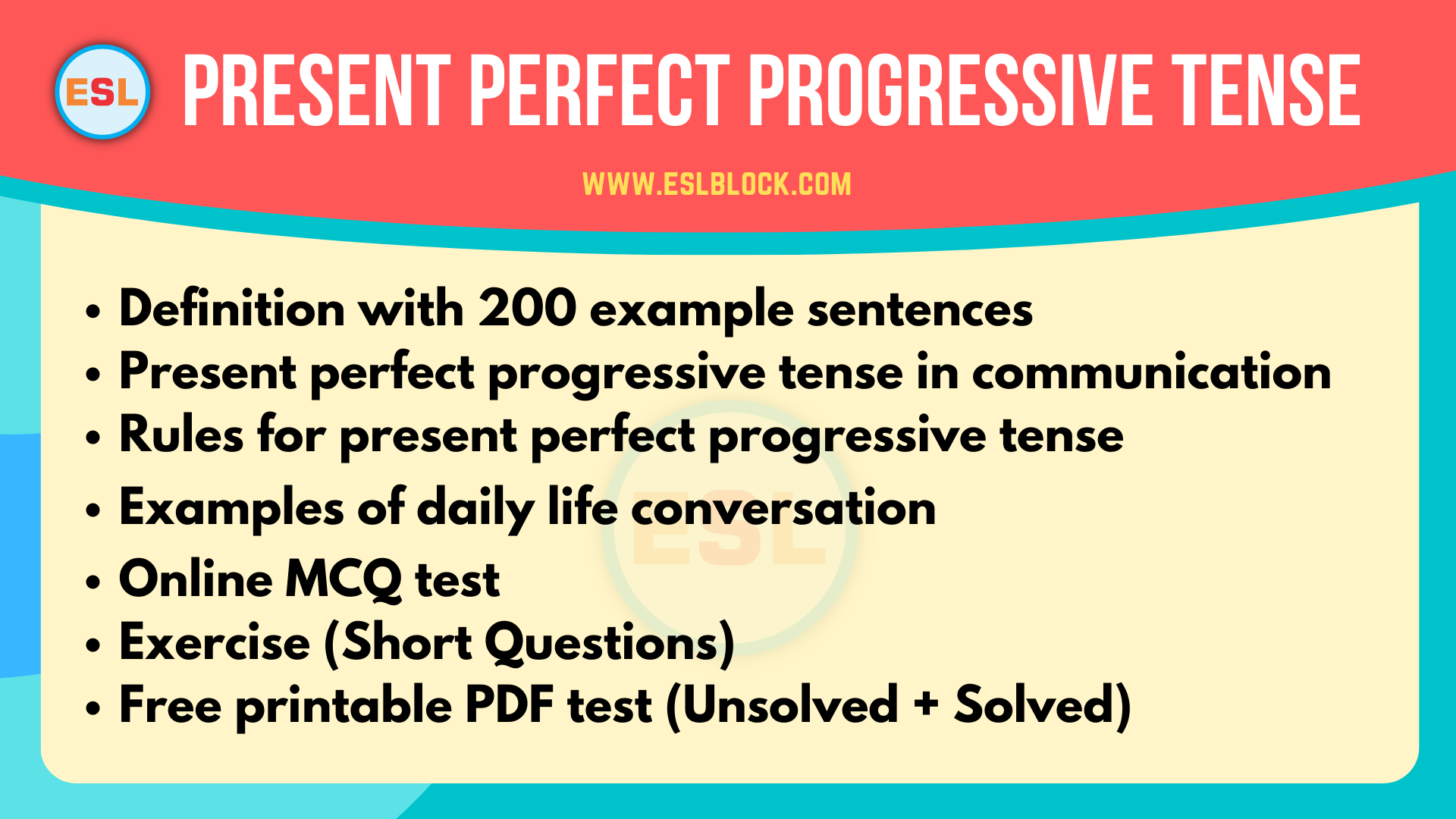
The present perfect progressive tense is a grammatical form used to describe an action that started in the past and is still continuing or an action that was recently completed.
It is a combination of the auxiliary verbs “have/has been” and the present participle (-ing form of the verb). Understanding and using this tense correctly can greatly enhance one’s ability to communicate effectively in English.
The purpose of this blog post is to provide a clear and concise explanation of the present perfect progressive tense, including when and why it is used, and how it can be formed.
Additionally, we will explore examples of the present perfect progressive tense in context, as well as the differences between it and the present perfect simple tense.
The goal is to provide readers with a solid understanding of the present perfect progressive tense, which will help them to communicate more effectively in English.
Read also: Personal Injury Lawyer Greenville NC
It is important to understand the present perfect progressive tense in English, as it is a commonly used tense in spoken and written communication. By learning to use it correctly, you will be able to express yourself more clearly and accurately in various situations, from casual conversations to academic or professional settings.
This blog post will provide a comprehensive guide to the present perfect progressive tense, including its structure, usage, and examples, making it easier for you to master this important grammatical form.
Read also: Types of Sentences Worksheets
How to form Present Perfect Progressive Tense?
Forming the present perfect progressive tense is relatively simple. The structure is as follows: “have/has been + present participle”. The auxiliary verbs “have/has” are used to indicate the past participle and “been” is used to indicate the present participle. To form the present perfect progressive tense, you need to use the appropriate auxiliary verb “have/has” according to the subject, then add “been” and the present participle form of the verb.
Some examples of forming the present perfect progressive tense include:
- I have been studying.
- He has been playing.
- They have been building.
- I haven’t been working.
- Have you been eating?
- Has she been sleeping?
- What have you been doing?
- Where have they been going?
- How long have you been waiting?
- Why haven’t you been listening?
For regular verbs, the present participle is formed by adding -ing to the base form of the verb (e.g. talk becomes talking). For irregular verbs, the present participle must be memorized or looked up in a dictionary. Some examples of forming the present perfect progressive tense with regular verbs include:
- “I have been talking”
- “He has been walking”
- “They have been working”
And some examples of forming the present perfect progressive tense with irregular verbs include:
- “I have been going”
- “He has been doing”
- “They have been having”
It’s important to note that you need to be careful with irregular verbs as their present participle form could be different from their base form, for example, the base form “go” becomes “gone” in present participle form.
In summary, forming the present perfect progressive tense is a combination of using the appropriate auxiliary verb “have/has” and the present participle form of the verb, which is formed by adding -ing to regular verbs and memorizing or looking up irregular verbs. With practice, you will be able to form the present perfect progressive tense with ease.
Rules for affirmative sentences
The present perfect progressive tense is used to describe an action that started in the past and is still continuing or an action that was recently completed.
To form affirmative sentences in the present perfect progressive tense, you need to use the appropriate auxiliary verb “have/has” according to the subject, then add “been” and the present participle form of the verb.
Here are ten example sentences in the affirmative form:
- I have been studying for two hours.
- He has been playing the guitar for three years.
- They have been working on the project for a month.
- We have been waiting for the bus for half an hour.
- She has been cooking dinner since 5 pm.
- He has been playing video games all day.
- They have been exercising regularly for the past year.
- I have been reading this book for a week.
- He has been writing a novel for two years.
- They have been practicing their speeches for the presentation.
Rules for negative sentences
To form negative sentences in the present perfect progressive tense, you need to use the auxiliary verb “have/has” + “not” + “been” + the present participle form of the verb.
Here are ten example sentences in the negative form:
- I haven’t been studying for two hours.
- He hasn’t been playing the guitar for three years.
- They haven’t been working on the project for a month.
- We haven’t been waiting for the bus for half an hour.
- She hasn’t been cooking dinner since 5 pm.
- He hasn’t been playing video games all day.
- They haven’t been exercising regularly for the past year.
- I haven’t been reading this book for a week.
- He hasn’t been writing a novel for two years.
- They haven’t been practicing their speeches for the presentation.
Rules for interrogative sentences
To form interrogative sentences in the present perfect progressive tense, you need to start with auxiliary verb “have/has” and add the subject + “been” + the present participle form of the verb.
Examples of interrogative sentences in the present perfect progressive tense:
- Have I been studying for two hours?
- Has he been playing the guitar for three years?
- Have they been working on the project for a month?
- Have we been waiting for the bus for half an hour?
- Has she been cooking dinner since 5 pm?
- Has he been playing video games all day?
- Have they been exercising regularly for the past year?
- Have I been reading this book for a week?
- Has he been writing a novel for two years?
- Have they been practicing their speeches for the presentation?
Examples of present perfect progressive tense in everyday situations
- I have been studying for the past two hours.
- He has been playing the guitar for the past three years.
- They have been working on the project for the past month.
- We have been waiting for the bus for the past half an hour.
- She has been cooking dinner since 5 pm.
- He has been playing video games all day.
- They have been exercising regularly for the past year.
- I have been reading this book for the past week.
- He has been writing a novel for the past two years.
- They have been practicing their speeches for the presentation.
- I haven’t been feeling well for the past few days.
- He hasn’t been answering his phone all day.
- They haven’t been working on the project for the past month.
- We haven’t been going to the gym as much as we used to.
- She hasn’t been cooking as much as she used to.
- He hasn’t been playing video games as much as he used to.
- They haven’t been exercising as regularly as they used to.
- I haven’t been reading as much as I used to.
- He hasn’t been writing as much as he used to.
- They haven’t been practicing their speeches as much as they should have.
- Have you been feeling well for the past few days?
- Has he been answering his phone all day?
- Have they been working on the project for the past month?
- Have we been going to the gym as much as we used to?
- Has she been cooking as much as she used to?
- Has he been playing video games as much as he used to?
- Have they been exercising as regularly as they used to?
- Have you been reading as much as you used to?
- Has he been writing as much as he used to?
- Have they been practicing their speeches as much as they should have?
- I have been feeling tired lately.
- He has been feeling stressed out lately.
- They have been feeling overwhelmed lately.
- We have been feeling more relaxed lately.
- She has been feeling happier lately.
- He has been feeling more motivated lately.
- They have been feeling more focused lately.
- I haven’t been feeling as energized as I used to.
- He hasn’t been feeling as motivated as he used to.
- They haven’t been feeling as organized as they used to.
- Have you been feeling more rested lately?
- Has he been feeling more confident lately?
- Have they been feeling more productive lately?
- I have been writing this article for the past hour.
- He has been running for the past 20 minutes.
- They have been traveling for the past two weeks.
- We have been working on this project for the past six months.
- She has been cleaning the house for the past three hours.
- He has been playing soccer for the past five years.
- They have been learning Spanish for the past year.
- I haven’t been sleeping well for the past few nights.
- He hasn’t been eating well for the past few days.
- They haven’t been drinking enough water for the past few days.
- Have you been feeling more creative lately?
- Has he been feeling more adventurous lately?
- Have they been feeling more experimental lately?
- I have been feeling more creative lately.
- He has been feeling more adventurous lately.
- They have been feeling more experimental lately.
- I haven’t been feeling as creative as I used to.
- He hasn’t been feeling as adventurous as he used to.
- They haven’t been feeling as experimental as they used to.
- Have you been feeling more confident lately?
- Has he been feeling more focused lately?
- Have they been feeling more organized lately?
- I have been practicing yoga for the past month.
- He has been meditating for the past year.
- They have been doing pilates for the past six months.
- We have been going for walks every day for the past two weeks.
- She has been taking dance classes for the past three years.
- He has been swimming for the past five years.
- They have been cycling for the past year.
- I haven’t been practicing yoga as much as I used to.
- He hasn’t been meditating as regularly as he used to.
- They haven’t been doing pilates as much as they used to.
- Have you been going for walks every day lately?
- Has she been taking dance classes lately?
- Have they been cycling regularly lately?
- I have been spending more time with my family lately.
- He has been focusing on his career lately.
- They have been making new friends lately.
- We have been working on improving our communication lately.
- She has been focusing on her self-care lately.
- He has been prioritizing his mental health lately.
- They have been saving money for their future plans.
- I haven’t been spending as much time with my friends as I used to.
- He hasn’t been focusing on his hobbies as much as he used to.
- They haven’t been making new friends as much as they used to.
- Have you been working on improving your communication lately?
- Has she been focusing on her self-care lately?
- Have they been prioritizing their mental health lately?
- I have been listening to more music lately.
- He has been watching more movies lately.
- They have been playing more video games lately.
- We have been reading more books lately.
- She has been trying new recipes lately.
- He has been exploring new hobbies lately.
- They have been traveling more lately.
- I haven’t been listening to as much music as I used to.
- He hasn’t been watching as many movies as he used to.
It’s important to note that you can make your sentences more complex by adding more information such as time, reason, and so on to make it more natural and informative. Also, you can use the present perfect progressive tense in many different scenarios, for different purposes and for different audiences.
- I have been studying since 8 am this morning.
- He has been playing the guitar since he was a child.
- They have been working on the project since Monday.
- We have been waiting for the bus since 9 am.
- She has been cooking dinner since 5 pm.
- He has been playing video games since the morning.
- They have been exercising regularly since the beginning of the year.
- I have been reading this book since last week.
- He has been writing a novel since the start of the year.
- They have been practicing their speeches since last month.
- I haven’t been studying since 8 am this morning.
- He hasn’t been playing the guitar since he was a child.
- They haven’t been working on the project since Monday.
- We haven’t been waiting for the bus since 9 am.
- Have you been cooking dinner since 5 pm?
- Has he been playing video games since the morning?
- Have they been exercising regularly since the beginning of the year?
- Have you been reading this book since last week?
- Has he been writing a novel since the start of the year?
- Have they been practicing their speeches since last month?
Differences between present perfect progressive and present perfect simple tense
The present perfect progressive and present perfect simple tenses are both used to describe actions that started in the past and continue to the present. However, there are some key differences between the two tenses.
- The present perfect simple tense is used to describe an action that has been completed or to describe an action that started in the past and continues to the present. Example: “I have seen that movie three times.”
- The present perfect progressive tense is used to describe an action that started in the past and is still continuing. It emphasizes the duration of the action. Example: “I have been watching that movie for the past three hours.”
- The present perfect simple tense is used to describe a completed action with a specific time. Example: “I have finished my homework”
- The present perfect progressive tense is used to describe an ongoing action at a specific point in time. Example: “I have been doing my homework for the past hour”
- The present perfect simple tense is used to express an action that is finished, but the result is still visible. Example: “I have painted the room”
- The present perfect progressive tense is used to express an action that is still ongoing, and the result is not visible yet. Example: “I have been painting the room for the past two hours”
- The present perfect simple tense is used to describe a finished action that has an effect on the present. Example: “I have read the book”
- The present perfect progressive tense is used to describe an action that is still in progress and has an effect on the present. Example: “I have been reading the book for the past week”
- The present perfect simple tense is used to describe a repeated action in the past with no specific time. Example: “I have visited my grandparents many times”
- The present perfect progressive tense is used to describe a repeated action that is still happening and has a specific duration. Example: “I have been visiting my grandparents every weekend for the past three months.”
In short, the present perfect simple tense is used to talk about actions that are finished or that started in the past but continue to the present. The present perfect progressive tense is used to talk about actions that started in the past but are still going on in the present, with an emphasis on how long they have been going on.
Present perfect progressive and present perfect simple tense in one sentence
In all these examples, both the present perfect simple and present perfect progressive tenses are used to show the contrast between an ongoing action and a completed action.
- “I have been studying for the past two hours, but I have finished my homework.”
- “He has been playing the guitar for the past three years, but he has already learned all the songs.”
- “They have been working on the project for the past month, but they have finally completed it.”
- “We have been waiting for the bus for the past half an hour, but it has finally arrived.”
- “She has been cooking dinner since 5 pm, but she has finally served the meal.”
In the first example, the action of “studying” is ongoing, and the present perfect progressive tense is used to describe the duration of the action. The action of “finishing homework” is completed, and the present perfect simple tense is used.
In the second example, the action of “playing the guitar” is ongoing and the present perfect progressive is used to describe the duration of the action. The action of “learning all the songs” is completed, and the present perfect simple is used.
In the third example, the action of “working on the project” is ongoing and the present perfect progressive is used to describe the duration of the action. The action of “completing the project” is completed, and the present perfect simple is used.
In the fourth example, the action of “waiting for the bus” is ongoing and the present perfect progressive is used to describe the duration of the action. The action of “arriving” is completed, and the present perfect simple is used.
In the fifth example, the action of “cooking dinner” is ongoing and the present perfect progressive is used to describe the duration of the action. The action of “serving the meal” is completed, and the present perfect simple is used.
Examples of the present perfect progressive tense in context
In all these examples, the speaker is emphasizing the duration of the action and using the present perfect progressive tense to show that the action has been ongoing for a specific period of time. Additionally, the context of the sentence shows that the action is still continuing or that its effect is still visible in the present moment.
- “I have been studying for the past two hours, I’m really tired now.” (The action of studying is ongoing and the speaker is emphasizing the duration of the action)
- “She has been cooking dinner since 5 pm, it should be ready soon.” (The action of cooking is ongoing and the speaker is emphasizing the duration of the action)
- “He has been playing video games all day, he should take a break soon.” (The action of playing video games is ongoing and the speaker is emphasizing the duration of the action)
- “They have been exercising regularly for the past year, it’s really paying off in their fitness.” (The action of exercising is ongoing and the speaker is emphasizing the duration of the action)
- “I have been reading this book for the past week, I’m really enjoying it.” (The action of reading is ongoing and the speaker is emphasizing the duration of the action)
- “He has been writing a novel for the past two years, it’s finally finished.” (The action of writing is ongoing and the speaker is emphasizing the duration of the action)
- “They have been practicing their speeches for the presentation, they’re going to do great.” (The action of practicing is ongoing and the speaker is emphasizing the duration of the action)
- “We have been waiting for the bus for the past half an hour, I hope it comes soon.” (The action of waiting is ongoing and the speaker is emphasizing the duration of the action)
- “She has been taking dance classes for the past three years, she’s really improved.” (The action of taking dance classes is ongoing and the speaker is emphasizing the duration of the action)
- “He has been swimming for the past five years, he’s really good at it.” (The action of swimming is ongoing and the speaker is emphasizing the duration of the action)
Common mistakes and tips for proper usage
- Not using the correct verb form: When using the present perfect progressive tense, remember to use the present participle form of the verb (verb + -ing). Common mistakes include using the base form of the verb or the past participle form.
- Forgetting to use the auxiliary verbs “have” or “has”: The present perfect progressive tense requires the use of the auxiliary verbs “have” or “has” before the present participle form of the verb. Without them, the sentence is not grammatically correct.
- Not understanding the difference between the present perfect simple and present perfect progressive tenses: As mentioned earlier, the present perfect simple tense is used to describe completed actions or actions that started in the past and continue to the present, while the present perfect progressive tense is used to describe ongoing actions that began in the past and continue to the present, emphasizing the duration of the action.
- Forgetting to use “since” or “for” when describing a duration of time: The present perfect progressive tense is often used in conjunction with time expressions such as “since” or “for” to indicate the duration of the action.
- Remember to use the present perfect progressive for ongoing actions and present perfect simple for completed actions with specific time.
- Practice and review, it’s a good idea to practice using the present perfect progressive tense in context. Try to use it in writing or speaking exercises to get a better feel for when to use it and how it sounds in a sentence.
- Get feedback from native speakers, a native speaker can help you identify mistakes you might not be aware of and give you tips on how to improve your use of the tense.
- Lastly, be patient with yourself, learning a new tense takes time and practice. Don’t be discouraged if you make mistakes at first, keep practicing and you’ll get the hang of it.
Use of present perfect tense in daily conversation
In this conversation, both Sophie and Adam use the present perfect progressive tense to describe ongoing actions that started in the past and continue to the present. They also use it to express their progress and feelings about their actions. They are using present perfect progressive to express the duration of an action and also how it’s going or how they feel about it.
Sophie: Hey Adam, how’s it going?
Adam: Hey Sophie, it’s going good. How about you?
Sophie: I’m doing well too. What have you been up to?
Adam: I’ve been working on a new project at work. I’ve been really busy with it for the past few weeks.
Sophie: Oh, that sounds interesting. How’s it going?
Adam: It’s been going well. We’ve been making a lot of progress.
Sophie: That’s great. I’ve been working on a project too. I’ve been studying for a certification exam for the past month.
Adam: That’s awesome! How have you been feeling about it?
Sophie: I’ve been feeling pretty good. I’ve been studying a lot, but I think I’m ready for the exam.
Adam: That’s great to hear. I’ve been hitting the gym more often. I’ve been trying to get in better shape.
Sophie: That’s great! How has it been going?
Adam: It’s been going well. I’ve been feeling more energized and I’ve been seeing some improvements in my fitness.
Sophie: That’s fantastic! Keep it up.
Questions and answers about present perfect progressive tense
- What is the present perfect progressive tense used for?
- The present perfect progressive tense is used to describe ongoing actions that began in the past and continue to the present, emphasizing the duration of the action.
- What is the correct form of the verb in the present perfect progressive tense?
- The correct form of the verb in the present perfect progressive tense is the present participle form of the verb (verb + -ing).
- What auxiliary verb is used in the present perfect progressive tense?
- The auxiliary verbs “have” or “has” are used in the present perfect progressive tense.
- When should you use “since” or “for” in the present perfect progressive tense?
- “Since” or “for” should be used when describing a duration of time in the present perfect progressive tense.
- Can the present perfect progressive tense be used to describe an action that is still ongoing?
- Yes, the present perfect progressive tense can be used to describe an action that is still ongoing.
Fill in the blank questions about present perfect progressive tense
- I _____ been waiting for you for the past hour. (have, has)
- He _____ been playing the guitar since he was a child. (has, have)
- They _____ been working on the project for the past two weeks. (have, has)
- We _____ been studying for the exam since yesterday. (have, has)
- She _____ been cooking dinner for the past hour. (has, have)
- I _____ been reading this book for the past week. (have, has)
- He _____ been writing a novel for the past three years. (has, have)
- They _____ been practicing their speeches for the presentation. (have, has)
- We _____ been waiting for the bus for the past half an hour. (have, has)
- She _____ been taking dance classes for the past four years. (has, have)
Answer:
- have
- has
- have
- have
- has
- have
- has
- have
- have
- has
Conclusion
In conclusion, the present perfect progressive tense is a useful tool for describing ongoing actions that started in the past and continue to the present. It emphasizes the duration of the action and is often used in conjunction with time expressions such as “since” or “for.” It is important to understand the difference between the present perfect progressive and present perfect simple tenses and use them correctly. With practice and patience, anyone can master the use of the present perfect progressive tense in their writing and speaking.
Summary of key points
- The present perfect progressive tense is used to describe ongoing actions that began in the past and continue to the present.
- The present perfect progressive tense requires the use of the auxiliary verbs “have” or “has” before the present participle form of the verb.
- The present perfect progressive tense is often used in conjunction with time expressions such as “since” or “for” to indicate the duration of the action.
- The present perfect simple tense is used to describe completed actions or actions that started in the past and continue to the present.
- Practice and patience are key to mastering the use of the present perfect progressive tense.
Additional resources for learning and practicing present perfect progressive tense
- Online grammar guides and exercises, such as English Central or English Grammar Online.
- Practice tests, such as those found on Test English or English Central.
- English language learning apps, such as Duolingo or Babbel.
- English textbooks and workbooks that focus on grammar, such as those by Oxford University Press or Cambridge University Press.
- English classes or tutors, for personal instruction and feedback.
By using these resources and practicing, you will be able to improve your understanding and use of the present perfect progressive tense in no time.
If you have enjoyed “present perfect progressive tense,” I would be very thankful if you’d help spread it by emailing it to your friends or sharing it on Twitter, Instagram, Pinterest, or Facebook. Thank you!
With ESLBLOCK, you will study with new ideas. If you doubt the qualities of the present perfect progressive tense, reach us through our blog’s comment section. Keep checking back! We’ll do our best to give you feedback as soon as possible. Thank you!
Related Articles
Here are some more lists for you!
- List of Fish: Types of Fish with Interesting Facts and Pictures
- List of Mollusks | Types of Mollusks with Interesting Facts
- List Of Farm Animals: Different Types of Farm Animals
- Shellfish | List of Shellfish with Interesting Facts

